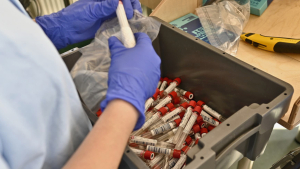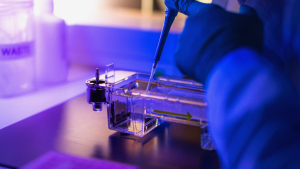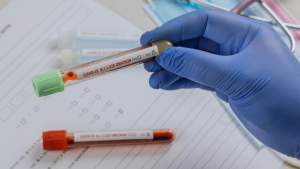Premenstrual syndrome (PMS) is familiar to many: some women feel unwell on the "days before the days", that is, just before menstruation, have chest, abdominal or headache, and are irritable or sad. Nevertheless, there are also many myths surrounding PMS. The more severe form of it, premenstrual dysphoria (PMDS), on the other hand, is known to only a few. With this disease, the symptoms such as sleep disorders, chest pain, depression, irritability, aggressiveness and concentration disorders are so severe that many affected women are impaired in their everyday life and sometimes can no longer pursue their profession.
So far, it has been assumed that the body is particularly sensitive to the normal fluctuations in sex hormones estrogen and progesterone in PMDS patients. The concentrations sometimes vary greatly in the second half of the cycle and after ovulation. »We know that estrogen and progesterone have an impact on serotonin levels, which in turn affects the mood directly. In the case of patients with PMDS, the brain's response to these changes in the cycle seems to be incorrectly regulated, «explains Julia Sacher from the Max Planck Institute for Cognitive and Neurosciences. Serotonin affects the mood directly and ensures inner calm and satisfaction by dampening feelings of fear and aggression. In this way, depression and aggressions can be attributed to a serotonin deficiency, among other things. Together with colleagues from the nuclear medicine of the Leipzig University Hospital, Julia Sacher therefore took a closer look at what role the messenger serotonin plays in the brain for PMDS patients.
"We examined 30 patients and 29 healthy study participants over several monthly cycles and took pictures of the brain with positron emission tomography (PET) at different cycle times," says Julia Sacher. The research team found that the density of serotonin transporters in the brain is increased before menstrual bleeding and thus the loss of this messenger substance is promoted. According to the researchers, this could trigger the symptoms in the affected women. This finding is surprising. Until now, experts thought that the serotonin transporter could not change in such a short period of two weeks. "Normally, only minor changes are assumed every ten years," explains Julia Sacher.
The new findings could change the therapy of the symptoms of PMDs: patients could take antidepressants in this period that contain a serotonin reuptake inhibitor as an active ingredient. So far, most therapies have included a longer use period. The medication prevents serotonin from binding to the van, so that the messenger fabric remains in the synaptic gap longer.
In principle, the serotonin level could also be influenced by eating behavior. "Precursor substances of serotonin such as tryptophan are found, for example, in cheese, poultry, soybeans, tofu, nuts and dark chocolate. Especially in winter, when the reduced hours of sunshine and the cloudy weather can also contribute to the deterioration of mood, it makes sense to pay some attention to it when eating, " says Julia Sacher. A daylight lamp can also have a positive effect on the serotonin balance. However, these measures do not achieve the concentrations that are achieved by drug therapy. "In future studies, it would be necessary to investigate in more detail how PMDS can be specifically influenced via nutrition and light therapy," explains Julia Sacher.



















